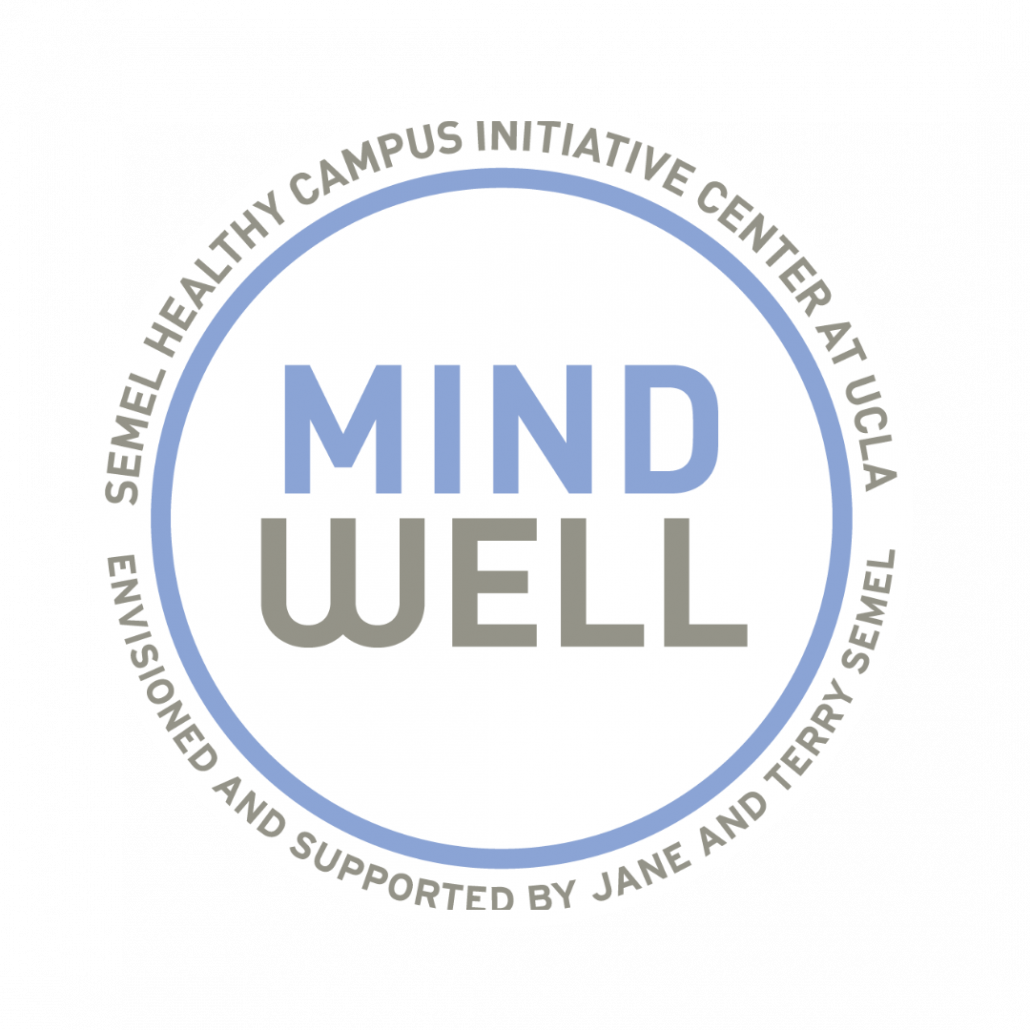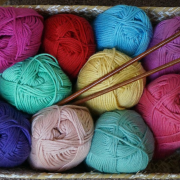Healthy Minds and Healthy Hearts: An Interview with Kimberly Uehisa
While heart health is often overlooked by younger generations, the effects it can have on living a healthy lifestyle are nonetheless important. Mental health can be severely impacted by stress, and so can heart health. Kimberly Uehisa, fourth year MIMG major and global health minor, is championing the importance of cardiovascular health and education in her new study with the UCLA Women’s Cardiovascular Center. I sat down with her to find out more about ECHOS (Early Cardiovascular Health Outreach), herself, and the importance of heart health.
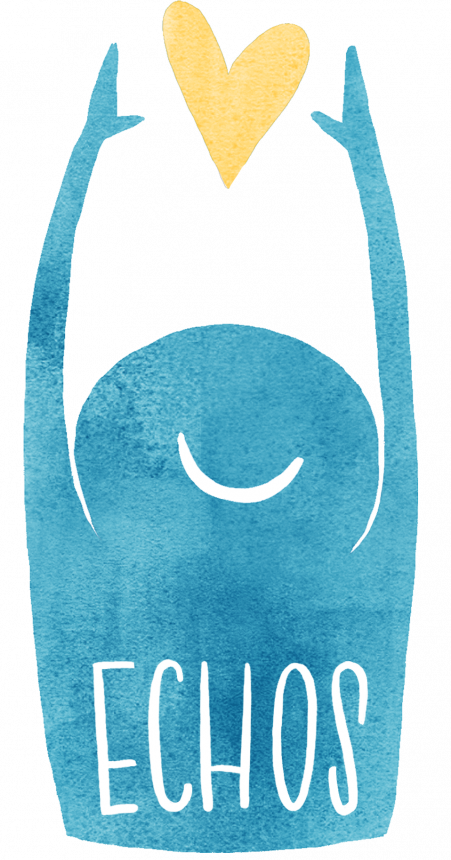
Kimberly has been a research fellow with the Women’s Cardiovascular Center for two years, studying prevention and effects of cardiovascular disease with her faculty mentor Dr. Tamara Horwich, Dr. Marcella Press, and Dr. Karol Watson. She became interested in heart health in high school after discovering she and her family had a history of high blood pressure and other heart-related medical issues. On top of her passion for helping others live heart healthy lifestyles, Kimberly is a research coordinator for the Department of Cardiac Surgery, and just started working in a bioengineering lab focusing on cardiovascular research. She was also recently selected for the Undergraduate Research Fellowship program for this particular research study.
To give a little bit more insight into who she is outside of her research, Kimberly strongly recommends owning a pet for their benefits in relieving stress, even though she doesn’t own any herself. Kimberly also likes to go hiking and explore the outdoors and is actually from Hawaii, where hula dancing was part of her school curriculum from elementary to high school. Also, while she is from Hawaii, no, she’s never surfed, and yes, she does get that question a lot. She’s an energetic firework here to spread the importance of early heart health with UCLA, and we are excited to learn more!
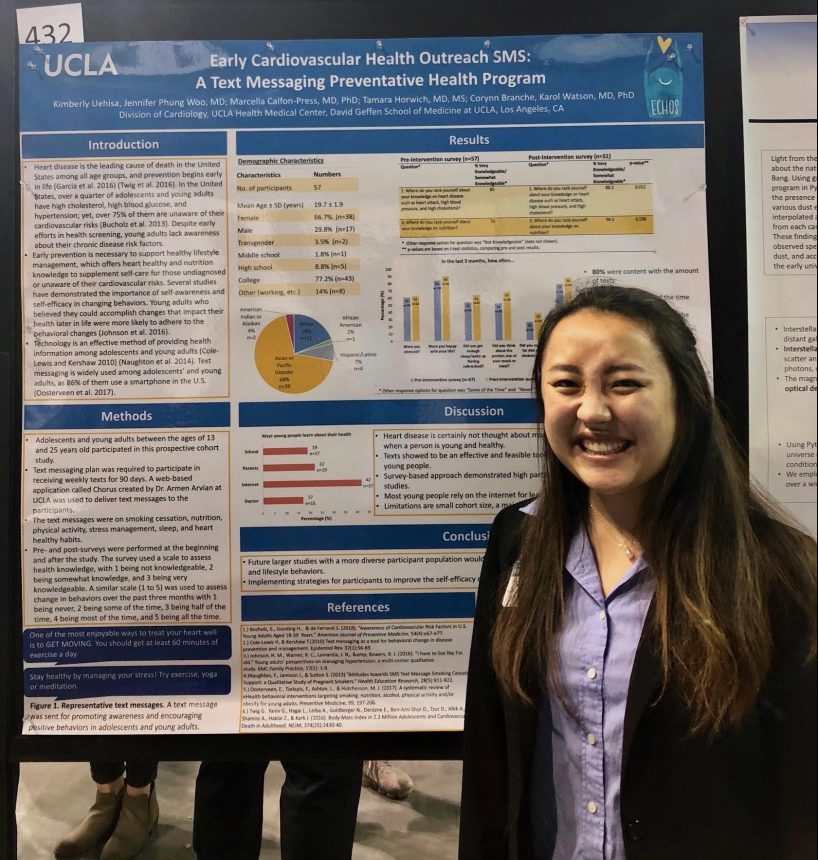
Q: What’s happening in the pilot study?
A: First, students will sign up on a link or QR code from a flier, and they will fill out a pre-survey. They will receive text messages for a 4 week period, 3 times a week, with suggestions of campus resources and heart health information. There will be weekly prize drawings to encourage active participation. At the end of the 4 week period, students who complete the post survey may receive a $10 gift card for their participation in the study. This text messaging system will hopefully alleviate stress and help student’s current and future well-being. The study is still waiting for IRB approval; once it is approved, we will notify UCLA’s student body.
Q: Why and when did you decide to study women’s cardiovascular health?
A: A history of high blood pressure in my family lead me become interested in cardiovascular health. I started my first research study in 2017 with Dr. Jennifer Phung-Woo. We recruited teens and young adults between the ages 13 and 25 and found out text messages were actually helpful, effective, and educational. The goal of the study was to reach out to young people about heart disease, connecting with them via text-messaging to educate them about the subject and know they aren’t the only ones that may be affected by it. Forming healthy habits early in life is really important.
Q: Why do you think heart health education is particularly relevant to college students?
A: As a student, I know from firsthand experience that college students experience high levels of stress, which affects our lifestyle choices. In this environment, education on heart health is particularly beneficial. The effects of stress on the body leave students at greater risk for developing cardiovascular disease.
Q: What are some cardiovascular health resources on campus?
A: A lot more will be shared in the text messages sent out to participants in the study, but off the top of my head: CAPS, Mindful Meditation, and Mindful Music. The text messages sent out in the study will give students quick links to the schedules so they can effectively and efficiently access the resources. The goal of the text messages is to cover all aspects of student life.
Q: If you could tell someone one tip to change or add to their lives to positively impact their heart health what would it be?
A: Just try not to be stressed (haha). On a more serious note: having a good support system and really strong relationships to be there for you is really helpful in the long run. Also, being aware of yourself and how you take care of your body.
Q: What do you think one of the biggest misconceptions is about heart health?
A: That it’s a man’s disease and not a woman’s disease. It happens to everyone, at all ages.
Q: What’s the main thing you hope students take from this study?
A: I hope for everyone to be aware of their stress and be engaged with their bodies as the heart is the heart of all health! Everything begins with being aware of yourself and aware of your surroundings.
February may be known for the more emotional aspects of the heart, but it’s also Heart Health Month. This makes it the perfect time to learn about living a heart healthy lifestyle and also just so happens to be when participants can begin signing up for the study. In just four weeks you can learn about resources on campus to help you engage in stress relief, be more educated about heart health, and possibly receive a $10 gift card. For further information or questions about the study, please contact Dr. Horwich at Thorwich@mednet.ucla.edu.
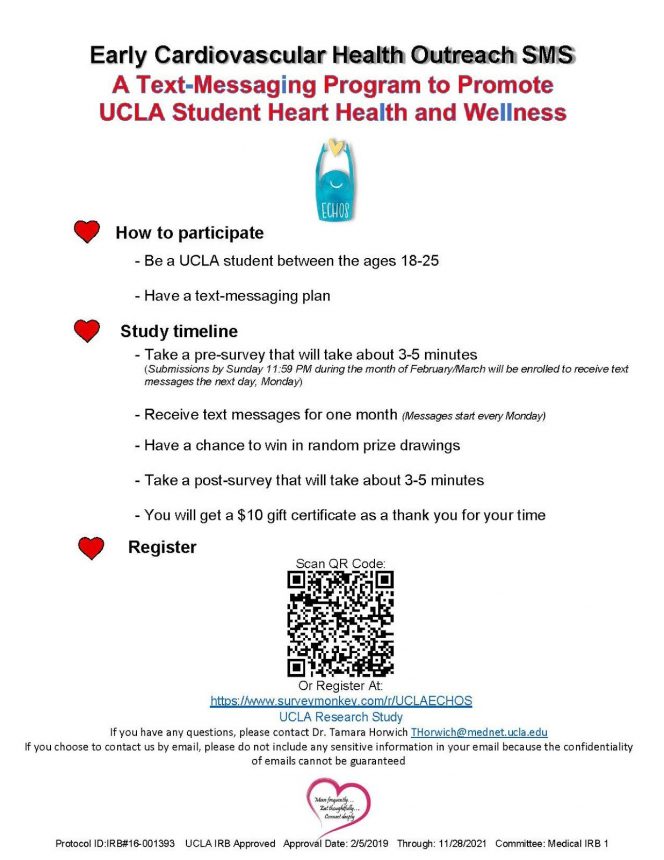
Aubrey Freitas is an undergraduate student at UCLA double majoring in English Literature and Psychology with a minor in Italian. She is a blogger for the Semel Healthy Campus Initiative Center at UCLA in the Mind Well section, which focuses on the importance of mindfulness and mental health. Aubrey is the founder of the organization Warm Hearts to Warm Hands, which teaches the skill of knitting to people of the community in return for their donation of an article of clothing they create with the skill, to be given to local homeless shelters.
